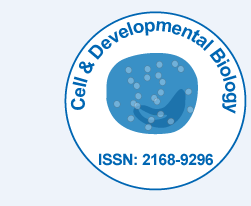
Cell & Developmental Biology
Open Access
ISSN: 2168-9296

ISSN: 2168-9296

Liang Ge
Molecular & Cell Biology
University of California, Berkeley, USA
Driven by a deep curiosity about the living creature, Dr. Ge directed his studies toward biological science. His research training began in the Institute of Biochemistry and Cell Biology, Shanghai Institutes for Biological Sciences, Chinese Academy of Sciences. There he conducted PhD work on establishing a cell model to study cholesterol absorption. Now Dr. Ge is a senior research fellow in Randy Schekman (the 2013 Nobel Laureate in Physiology or Medicine) lab in Department of Molecular & Cell Biology at University of California Berkeley, where he employs systematic biochemical and cell imaging approaches to dissect different intracellular trafficking events. Dr. Ge was a Human Frontier Science Program Fellow in 2012. Currently, he is a Jane Coffin Childs Foundation Fellow.
Autophagy is a catabolic process for bulk degradation of cytosolic components. It plays a fundamental role in intracellular quality control and material recycling as well as adaptation to multiple stresses. Misregulation of autophagy has been indicated in many human disorders including cancer, neurodegeneration and aging. A key feature of autophagy is the de novo formation of double-membrane vesicles, termed autophagosomes, by a substantial membrane investment from various endomembrane sources. Since its discovery more than 50 years ago, the mechanism accounting for the membrane mobilization to generate the autophagosome has been a mystery. Dr. Ge’s research interest is to functionally dissect the process of membrane mobilization from existing cellular pools for autophagosome biogenesis. He developed a functional assay which recapitulates multiple landmarks of autophagosome biogenesis regulation based on LC3 lipidation, a key early step in autophagy. He has used this reaction and a complete organelle fractionation scheme to identify a novel source of membrane template for lipidation the endoplasmic reticulum-Golgi intermediate compartment (ERGIC), a sorting station for cargo transport between the endoplasmic reticulum and the Golgi appratus. Dr. Ge is currently focusing on the molecular machineries involved in mobilizing membrane from the ERGIC for delivery to a nascent autophagosomal precursor.